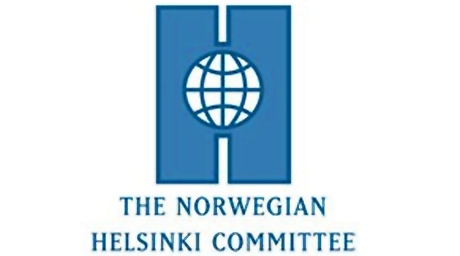NGOs urge EU to make its restrictive measures against Belarus effective
The letter was sent on the eve of a meeting of the Council on Foreign Affairs of the European Union which will be held in Luxemburg on 21 October to discuss sanctions. The current EU sanctions against more than two hundred Belarusian individuals and companies expire in the end of October, and 28 EU member states will have to make a decision at the Council meeting whether to extend the current sanctions as they stand now, delete some names or add new names. The letter sent by NHC and other NGOs included an endorsement of a policy paper published a few days ago by the Working Group on Investment of the Committee of International Control over the Human Rights Situation in Belarus.
- I am extremely concerned that the political prisoners, who have languished in prison for almost three years under terrible circumstances, slowly are being forgotten by Europe. Effective sanctions are the best tool we have at hand, they should be strengthened, not weakened, until the prisoners are released and Lukashenka truly improves his record of human rights in Belarus, says Bjørn Engesland, Secretary general of the Norwegian Helsinki Committee.
EU sanctions, which were previously effective in gaining the release of political prisoners, have become ineffective due to loopholes and a lack of political will to expand sanctions. It should not be surprising that weakly applied sanctions which allowed trade between Belarus and EU to increase, were not promoting positive change in Belarus. Loopholes created for private Belarusian petrochemical exporters due to the business interest of some EU member states allowed the regime to earn an additional 3 billion US dollars in 2012 and stay afloat.
Despite multiple promises to release political prisoners given to EU by envoys of Lukashenka, the situation for political prisoners has deteriorated and not a single improvement in the human rights situation and rule of law has been registered in Belarus in 2013. This takes place against a background of increasing EU “dialogue” with Belarus. The “dialogue” is not working and restrictive measures which once proved effective in gaining the release of political prisoners are now so weakened that they are failing to produce results, say the authors of the letter. However, the regime is particularly vulnerable to sanctions now due to a deteriorating economic situation. It is in dire need of cash to maintain artificially high level of salaries and pensions and pay back old foreign loans.
“There is no incentive for the regime to release political prisoners or make other improvements when it believes it can continue to increase its revenues without doing so. It is essential that EU member states take a responsible decision now to extend and expand restrictive measures regarding Belarus,” - said Yuri Dzhibladze, coordinator of the Working Group on Investments of the Committee of International Control over the Human Rights Situation in Belarus and a co-author of the policy paper.
The list of organisations which have endorsed the recommendations as of 17 October and signed the letter to the EU includes Civic Movement "European Belarus" (Belarus and Poland), Ostgruppen (Sweden), Norwegian Helsinki Committee (Norway), AdHoc (Slovakia), “People in Need” (Czech Republic), Open Estonia Foundation (Estonia), Libereco – Partnership for Human rights (Switzerland and Germany), Finnish-Russian Civic Forum (Finland). More endorsements are expected in the coming days.


















